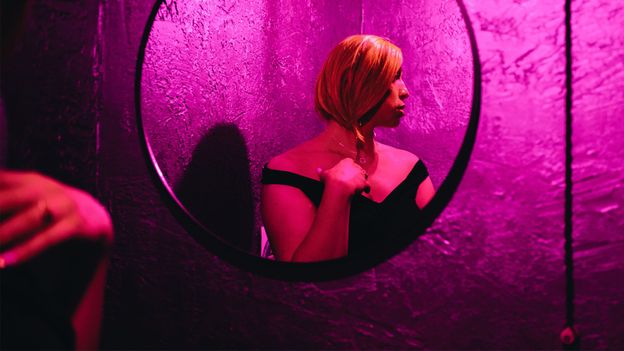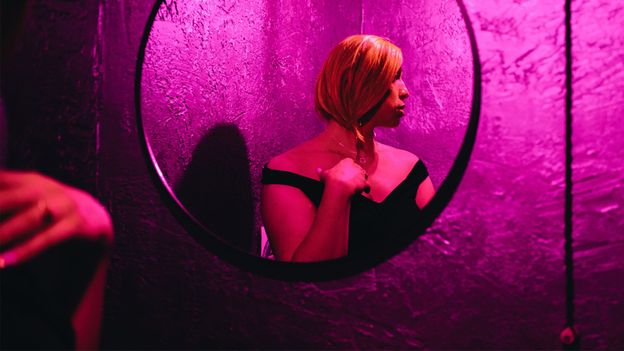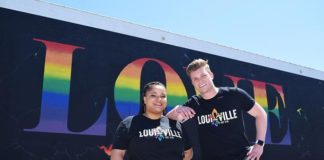
During the day, Kikonishvili works with artist and activist Tekla Tevdorashvili and others at the Fungus Gallery, an LGBTQ+ art collective and gallery in a quiet corner of Tblisi that invites artists from across the Caucasus region. Tevdorashvili says it is hard to understate the importance of club culture in these social changes. “Nightlife changed the whole context of how Georgian society perceives queer people. Clubs were the first place to offer them a safe space, and now the attitude people have in the clubs is shifting to daylight.”
Another hotspot for Tblisi nightlife is Success bar, the oldest gay bar in the entire Caucasus. Its owner Nia Gvatua initially just wanted to redecorate the somewhat dingy place so that she could make it worth visiting for the local community. Five years ago, after asking around, she was invited to meet with a local businessman, who proceeded to open his safe and gave her $20,000 cash on the spot. She set about transforming the bar into a cultural hub. “When I began, it was more about aesthetics. I was really into electronic music for many years, so when I began, I was more focused on which DJs I wanted to book and what cocktails I wanted to make.” A linchpin of the Tblisi LGBTQ+ scene who has shared style tips with Vogue, Gvatua documents the scene with photography, and directs drag shows at Success, Bassiani and other venues.
Resistance and resilience
But Tevdorashvili and others wanted to get involved in more than just clubs, so they set up Fungus, where they recently put on Resilience, a group exhibition of photography and multimedia art dedicated to trans women. Named as such because fungus comes from the dark underground, Fungus’s motto is “we thrive wherever we get even a little chance to grow,” and it’s located next to Klara’s bar, where Talikishvili performs fortnightly. Though the reception from the locals was initially awkward, things have warmed up a lot recently, with one man coming recently to tell them “respect from the neighbourhood!”.
For Tevdorashvili, this need for safe spaces is all too real. A few years ago she put an art installation up in a public park days before the annual church-organised “day for family purity”. The installation was a rainbow-coloured box entitled “Closet”, with handwritten notes from the LGBTQ+ community, which played a speech and then the Diana Ross song Coming Out. She had only told a few trusted blogs about it in advance, but it was attacked by a far-right activist within just a few hours of being up. Tevdorashvili recognised him from demonstrations. The police came but they advised against putting the artwork back up. This was a setback, she says, but not a defeat: “What we artists and activists has gone through have only made us stronger.“
Kikonishvili agrees. “It’s not like homosexuality was invented in Georgia after the breakup of the Soviet Union,” he laughs. Though it was briefly made legal after the October revolution, Joseph Stalin (born in Georgia as Iosip Jugashvili) criminalised homosexuality again in 1934, with the strong support of author Maxim Gorky. (The freedom of same-sex sexual activity was not officially enshrined in law in Georgia until 2000, and, of course, despite that legality, social acceptance has been another matter.)
Kikonishvili points to the Berikaoba festival, which he says is celebrated across the country by cross-dressing, drinking and feasting, as well as the popularity of gay Georgian cultural figures like the famed Tblisi-born director Sergei Parajanov and traditional dancer Vakhtang Chabukiani, as evidence of the shallow roots of contemporary homophobia in Georgia. “Chabukiani is the most beloved Georgian dancer ever, and he was gay and everyone knew it.” Parajanov, however, was persecuted by the Soviet authorities for his sexuality as much as for his subversive filmmaking.








